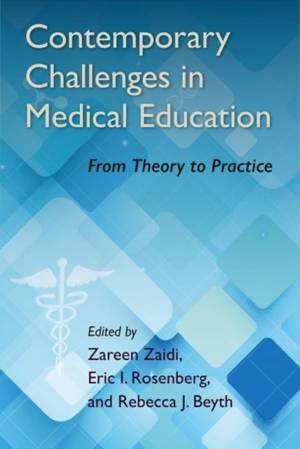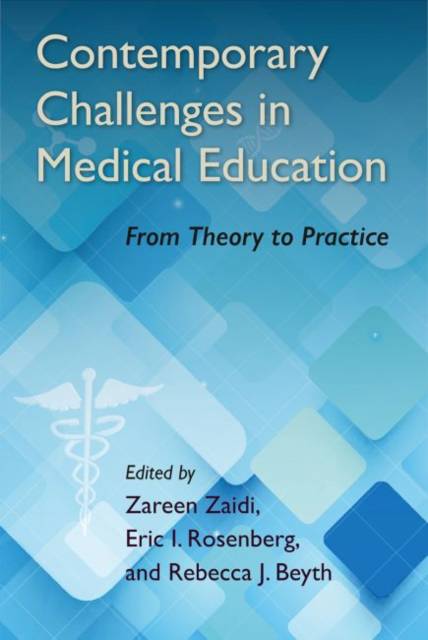
- Afhalen na 1 uur in een winkel met voorraad
- Gratis thuislevering in België vanaf € 30
- Ruim aanbod met 7 miljoen producten
- Afhalen na 1 uur in een winkel met voorraad
- Gratis thuislevering in België vanaf € 30
- Ruim aanbod met 7 miljoen producten
Zoeken
Contemporary Challenges in Medical Education
From Theory to Practice
Hardcover | Engels
€ 83,95
+ 167 punten
Omschrijving
While medical schools usually emphasize the teaching of advanced scientific fundamentals through a carefully planned, formal curriculum, few focus on the equally crucial "hidden curriculum" of professional attitudes, skills, and behaviors. This concise and practical guide helps educators effectively prepare students for seldom-taught issues that arise daily in the practice of clinical medicine. In this volume, experienced clinician-educators offer real-world examples of various pedagogical and clinical scenarios, providing evidence- and theory-based approaches to managing three areas of growth: professional development, professionalism, and teaching. Acknowledging human fallibility, the editors begin with a framework that institutions, educators, and learners can use to promote well-being, outlining strategies for mindfulness training, relaxation techniques, appreciative inquiry, narrative medicine, and positive psychology. They then apply these strategies to additional developmental topics like failure, burnout, and improving resilience, social identity formation, and graceful self-promotion. The editors move on to discuss power differentials. They suggest ways of combatting microaggressions faced by women and minorities, fostering a safe learning environment where learners feel comfortable advocating in the setting of ethical dilemmas, recognizing and avoiding student mistreatment, and encouraging humility. They close with implications for the classroom, explaining the benefits and pitfalls of electronic health records and social media, the positive and negative attributes of role models, how to comfortably navigate controversial topics like gun ownership and abortion, and teaching empathy. With helpful infographics and case studies, this volume is a valuable resource for frontline educators who wish to help learners navigate the transition from layperson to medical professional. Contributors: Zareen Zaidi Rebecca Beyth Eric Rosenberg
Specificaties
Betrokkenen
- Uitgeverij:
Inhoud
- Aantal bladzijden:
- 298
- Taal:
- Engels
Eigenschappen
- Productcode (EAN):
- 9781683400745
- Verschijningsdatum:
- 7/05/2019
- Uitvoering:
- Hardcover
- Formaat:
- Genaaid
- Afmetingen:
- 152 mm x 229 mm
- Gewicht:
- 603 g

Alleen bij Standaard Boekhandel
+ 167 punten op je klantenkaart van Standaard Boekhandel
Beoordelingen
We publiceren alleen reviews die voldoen aan de voorwaarden voor reviews. Bekijk onze voorwaarden voor reviews.










